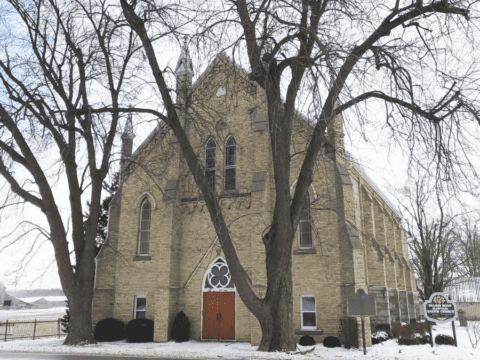The United Church of Canada finished 2024 with a deficit only slightly higher than projected, but the denomination is further tightening the purse strings in 2025.
In 2024, the church budgeted for a $2.3-million operating deficit, intended to be covered by investment returns from its operating reserve. The actual deficit was only about $10,000 to $20,000 over this projection.
You may unsubscribe from any of our newsletters at any time.
Mission & Service contributions totalled $19.6 million, $80,000 more than the General Council Office had budgeted. M&S contributions from congregations made up $15.51 million of the total, exceeding budget expectations by $700,000. Additionally, the long-standing pre-authorized remittance (PAR) program generated nearly $500,000.
Mission & Service contributions also include donations from United Church Women, bequests and donations received directly from donors.
The denomination also controlled its costs. Staffing costs and grant expenses remained aligned with budgeted figures — which included 21 percent cuts to grants — and the denomination controlled non-discretionary costs like rent and licensing.
One concern that arose in 2024 was the increase in uncollected assessment payments from congregations, from $1.5 million at the beginning of the year to almost $2 million by year-end. Assessment payments are yearly contributions that communities of faith are required to make to the work of the national church.
The General Council Office is encouraging pre-authorized payment systems and collaborating with regional council staff to raise awareness about making timely payments. “We are trying to understand the reasoning for the lack of payment and determine a process for collecting,” General Secretary Rev. Michael Blair noted in his latest accountability report to the General Council Executive.
The 2025 budget is even tighter. The projected deficit has been reduced to under $2 million to manage the amount of money the church is withdrawing from its investment reserves to cover operating costs.
- Worshippers mark 100 years of the United Church in a colourful official service
- Toronto church celebrates United Church centennial with 100-foot potluck picnic
- 3 centenarians on what a lifetime of faith has meant to them
While Mission & Service revenue forecasts are slightly more optimistic based on stronger-than-expected 2024 results, other revenues aren’t expected to grow too much.
Blair wrote in his accountability report that Mission & Service contributions continue to go down each year, highlighting the economy and the postal strike as factors. “One of the challenges with Mission and Service continues to be visibility in the life of the church,” he wrote.
On the expense side, the church isn’t cutting grants to global and Canadian ecumenical partners and mission initiatives any further in 2025. Staffing costs are also being tightly controlled. Salary expenses are expected to remain on par with 2024. The church is also implementing a hiring freeze and capping the cost-of-living adjustment at 2.5 percent for 2025.
And recognizing the need for longer-term financial planning, the United Church is transitioning from annual budgeting to a triennial budgeting approach for 2026–2028. United Church executive officer of finance Harry Li says that the change will make budgeting more straightforward and better connect it with the church’s strategic priorities.
“As a result, the denomination will have a more integrated view of its financial commitments and mission objectives,” he wrote in an email.
***
Avil Beckford is the founder of The Invisible Mentor, The Art of Learning Leadership Academy and The One Problem podcast. She’s the author of Leadership Reading: Spilling the Tea on How Top Leaders Read. Beckford lives in Toronto.














I have difficulty understanding why some churches, never mind denominations, run “deficit” budgets. We know governments do it but they often have the power to create money. Individuals and households cannot operate that way for long. I often reflect on what I was told years ago, if true: “God’s work, done in God’s way, will not lack God’s supply.”